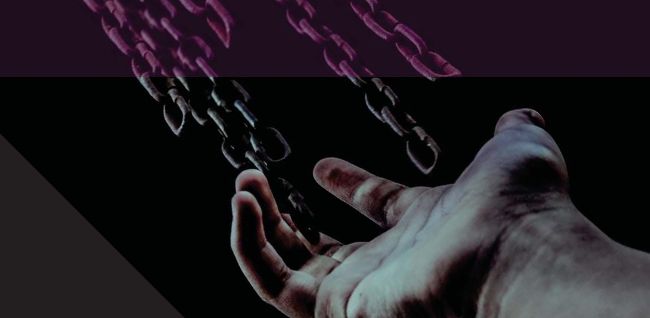Disaster and redemption
The Rev Richard Baxter considers the Bible’s best-known story of slavery.

Photo: iStock
A series on slavery and freedom would be incomplete without the Bible’s most famous slave story. It tells of disaster and redemption, splits and reunions, and of God turning up even in unlikely places.
Joseph’s story grabs the imagination, and lends itself to all sorts of retellings. The first live stage show I remember was a slick, glitzy performance of Joseph and the Amazing Technicolour Dreamcoat. However, the all-singing, all-dancing musical should not deflect us from the gritty, painful story of someone discovering God in the dark times.
The story is told in Genesis 37: 39-50. Like many contemporary people trafficking stories, it begins in a family under pressure and at breaking-point.
Modern slavery may start where there are too many mouths to feed, too few economic opportunities, disrupted family life, and perhaps a perception that some people can be treated as expendable.
Favouritism and family jealousies almost lead to Joseph’s murder, until his callous brothers spot an opportunity for gain. Joseph is sold to a group of people-traffickers. His fate is then out of his own hands, and out of the minds of his brothers. He is taken to Egypt and sold as a slave.
The characters Joseph encounters there exist in many contemporary stories.
One person he meets seems fundamentally good, yet has a crucial blind spot. Potiphar treats Joseph well, appreciates his talents, and trusts his judgement, but never questions his own right to own another person. Those who might deplore slavery and people trafficking, but ask no questions about the low cost goods and services they enjoy, have Potiphar’s blind spot.
Next, he meets someone who sees others as objects for their own sexual gratification, with the dehumanisation that involves. In Joseph’s story the normal roles are reversed, with a woman (Potiphar’s wife) as the exploiter and a man (Joseph) as the victim. To cover her own failings, she makes false accusations heedless of the impact on Joseph.
Thrown into prison for a crime he did not commit, Joseph refuses to wallow in misery. Instead, he actively helps others imprisoned with him. The baker learns the hard lesson that life is cheap to those who profit from others. Meanwhile, Joseph discovers the invisibility of the oppressed.
When the steward he helped is released, he forgets his friend in prison. Joseph languishes in jail for two more years, the victim of ingratitude.
Finally, Joseph finds a new beginning as an advisor and servant to Pharaoh. He rises to high position, but still he is not free. He acts at Pharaoh’s command, works on Pharaoh’s priorities, and holds office at Pharaoh’s whim. An unexpected opportunity arises to rescue his own family and eventually even for reconciliation.
This stage of Joseph’s story reminds us that even the apparently prosperous, powerful and successful may be enslaved in some aspect of their lives.
In his youth, Joseph viewed God as just the engine for his self-important dreams. As a slave, he learned first that God’s strength helped him to succeed, and then that God was with him even when life was cruel and unfair, and hopes were dashed. Finally, he learned from God the capacity to forgive and to work for change.
Not all stories of slavery and human trafficking have those positive outcomes. However Joseph reminds us that God’s love is for the downtrodden and the oppressed, and that life may be unpredictable and uncertain, but God is not.
The Rev Richard Baxter is minister at Fort William: Duncansburgh MacIntosh linked with Kilmonivaig